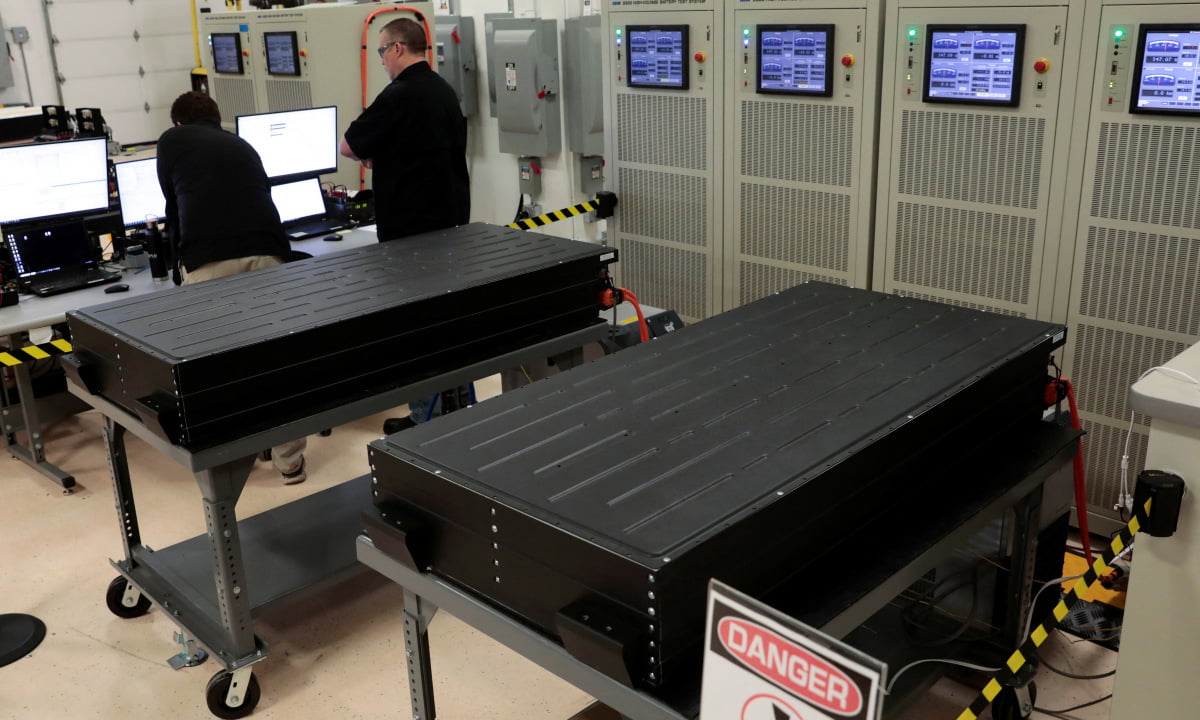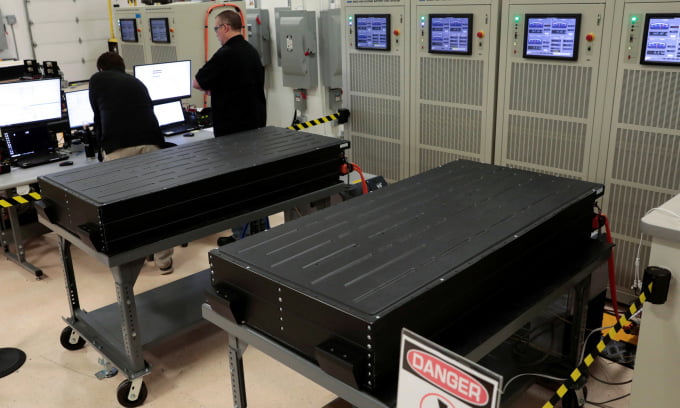
Electric vehicle batteries require a combination of electrolyte materials to find a solution that provides the highest energy density and fastest charging time. It can take manufacturers more than 10 years and thousands of failed tests to find the formula that best suits their requirements.
“The problem is that there are too many potential options but not enough testing time,” said Austin Sendek, co-founder and CEO of Aionics, affirming that AI can fix this problem.
Li-ion batteries have three basic components, including a cathode, an anode and an electrolyte membrane in the middle to circulate ions between the electrodes during charging and discharging the battery. Aionics, a company founded in 2020 in Palo Alto and which has raised $3.5 million in funding, focuses on electrolytic membranes and uses an AI toolkit to accelerate research to bring better battery models in the future. hybrid.

Electric car batteries tested at a factory in Michigan in 2022. Photo: Reuters
The company is working with multiple businesses, including Porsche battery maker Cellforce, energy storage company Form Energy and Japanese chemical maker Showa Denko. The process begins with a customer requesting a new battery model, and Aionics experts deploy an AI toolkit to run tests on a database of billions of physical samples and can evaluate 10,000 samples per second.
The AI model will learn to predict the results of the next simulation, allowing material candidates to be selected for further testing. The number of tests will be proportional to the amount of data generated, improving AI’s ability to handle problems.
Aionics now goes a step further by applying generative AI . Instead of relying on a database of billions of material samples, they began deploying models trained on existing information about electric vehicle batteries to create or design new materials for specific tasks. The company uses software developed at Carnegie Mellon University (CMU). Venkat Viswanathan, a CMU professor, is also the co-founder and chief scientist of Aionics.
Aionics uses a large language model on the GPT-4 platform to help experts choose the right solution from millions of formulas, before they put them into the operational database. The chatbot is trained with chemical and scientific materials selected by Aionics, not to discover new materials, but mainly to eliminate compounds that are ineffective for the specific task given by the customer.
Once trained, the model will allow the scientist to ask questions. “It’s no different from a normal person querying content in a textbook. Everything can be verified by citing the source of the material used to train the chatbot,” Sendek said.
Aionics will transfer data to customers for evaluation after sifting through billions of test samples and selecting the most suitable samples. “If we don’t get results after the first round, we will do it again and combine it with real-life tests until we find the best solution. Then Aionics will coordinate with manufacturing partners to launch the line.” products and bring them to market,” the company CEO said.
Diep Anh (according to TechCrunch )

Leave a Reply
You must be logged in to post a comment.